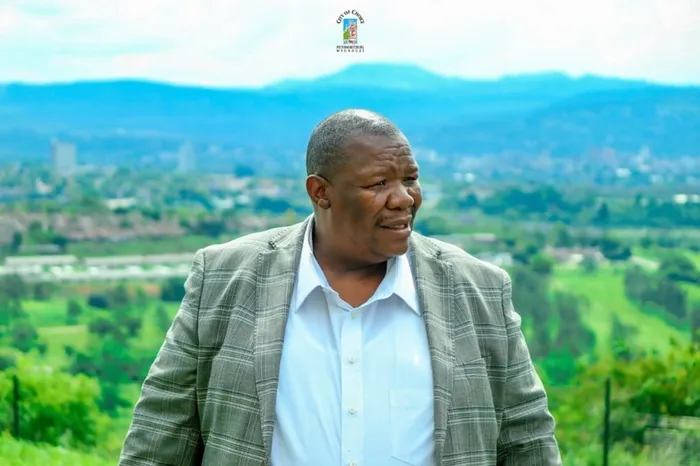Thornville residents rally behind new traditional leader to fight municipal land rates

Msunduzi Mayor Mzimkhulu Thebolla states that only CoGTA can appoint an inkosi in response to Thornville residents appointing Inkosi Sikhosiphi Mdluli of Nyavu Tribal Authority as their leader.
Image: Independent Media Archives
Residents of Thornville in Pietermaritzburg, who have a long-standing dispute with the Msunduzi Municipality over the land they acquired through invasion, have appointed an inkosi to lead them as they seek to prevent the city from imposing rates on their properties.
The residents, estimated to be over a thousand, held a mass meeting with their new Inkosi, Sikhosiphi Mdluli, who is already the Inkosi of the KwaNyavu Tribal Authority near Camperdown, on Saturday.
The traditional leader promised to pressure the municipality to provide essential services like water and proper roads, which they had been lacking since they began occupying the land over a decade ago.
They hope that under the traditional leadership, the municipality would not be able to force them to pay rates, as they would now occupy the land through a Permission to Occupy document.
Msunduzi Mayor Mzimkhulu Thebolla believes that the high standard of the residents' houses indicates they can afford to pay rates.
Thebolla said he received a letter, which he believed was informing him about Mdluli being the inkosi in the area.
He clarified that only the Cooperative Governance and Traditional Affairs Department (CoGTA) held the authority to appoint an inkosi.
CoGTA provincial spokesperson Senzo Mzila said the department was not aware of Mdluli extending this territory to Thornville, “and will investigate it”.
The standoff between the community members dates back to 2013, when the municipality tried to demolish their modest houses and evict them.
The land previously belonged to farmers, but the municipality had earmarked some of it for low-cost houses.
Some residents, who were livestock farmers, had used part of the land to graze their animals.
Some residents believe the municipality has intentionally ignored their service requests. The residents wanted the land to be categorised as rural under the traditional leadership.
Senzo Khoza, appointed as induna by Mdluli, stated that the residents initially approached Inkosi Mlaba of KwaXimba Tribal Authority, who was not interested in leading them.
Khoza already considers the Thornville residents part of the Nyavu authority. The residents later discovered the land was formerly KwaNyavu territory, confiscated by the apartheid government.
They then approached Mdluli, who produced documents proving that he was claiming it back.
“Inkosi said the land used to belong to him and showed us the papers proving that he had started claiming the land,” said Khoza.
Eskom recently installed electricity in the area after disconnecting an illegally connected power supply.
Khoza said Mdluli has started to facilitate the construction of a proper road network.
Currently, if there is rain, residents are struggling to drive on the muddy and slippery roads. Some residents rely on water tankers for water supply.
“As the community, we had already told the municipality that we wanted our area to be recognised as rural so that we can bury our loved ones in our homes. We wanted to be able to farm livestock and plough fields in our home,” said Khoza.
Mdluli said he wanted the residents and the municipality to bury their differences and work together for service delivery.
He said he was holding a meeting with the municipality to discuss the plight of the Thornville residents.
“The residents of Thornville should receive services from the municipality,” said Mdluli.
He said KwaNyavu started to claim the land in 1998, and he continued with it in 2013.
Thebolla said CoGTA had the authority to install amakhosi and allocate where they should be in charge.
“It is CoGTA who can say whether or not that area should be under inkosi and if it is under inkosi, which inkosi should be in charge of which area,” he said.
The mayor explained that the municipality has the authority to rate areas irrespective of whether they are under the traditional authority.
“For the area to get services, there should be a certain way to do it. So, I don’t believe that bringing a certain inkosi to avoid paying rates or to be placed under the town planning is going to work,” said Thebolla.
He said a large part of Thornville was still zoned as agricultural land; therefore, the rates were linked to farmers, who are still registered as land owners.
According to him, the residents of Thornville should pay rates as they could afford, but there was still a process to rezone the land.
“There is a need to resolve the issue of ownership between those people (residents) and the land owners.”
bongani.hans@inl.co.za
Related Topics: